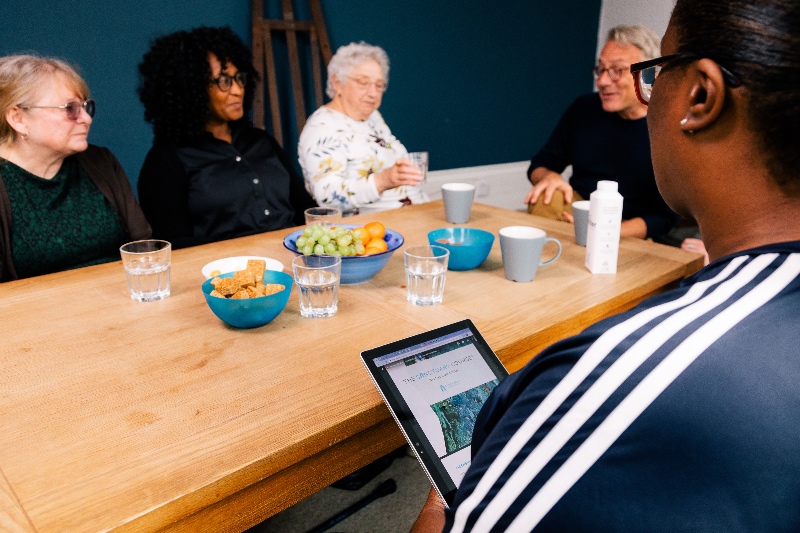Exploring mental health - with faith at the heart of it
Corin Pilling introduces The Sanctuary Course, a new small-group resource designed to reduce stigma, raise awareness, and engage communities in meaningful conversations about mental health and faith

I wonder how your wellbeing has been impacted by the pandemic? Many of us are desperate to move beyond these difficult months, and may even feel tired by the very question. Thankfully, the isolation and disruption that accompanied lockdown has become a distant memory for the majority. We are more confident that if we make plans, they will be fulfilled; a key element of our planned cycles of rest and relaxation.
Yet the challenges of this time seem twofold: we need to rebuild and reconnect, but all the while many of us feel still feel weary. It turns out that the pandemic is still sticking to us despite our best efforts.
There's a reason for this. We’ve experienced what many are describing as collective trauma. I often describe this as akin to an earthquake. Not all of us are in the epcientre, but we will all feel the ripples- particularly if we are supporting those who have been there.
And if we’ve carrying a load in leading congregations, we still might be feeling it acutely. I’m hearing of more examples of people needing to leave the ministry due to burn-out, having served to the point of exhaustion. As a church, we need an answer to this, as well as the broader questions that are raised about mental health in our communities.
A collective approach to our wellbeing
At least one in four people will be affected by a mental health challenge at some point in their lives, yet the stigma surrounding these experiences often prevents churches from responding compassionately and effectively. Often it feels difficult to know where to begin with experiences that may be complex that affect people so differently.
We developed The Sanctuary Course to address this. It’s a small-group resource that is free to download. It is designed to reduce stigma, raise awareness, and engage communities in meaningful conversations about mental health and faith. Each session examines a key mental health topic, with the story of somebody who has lived with a mental health challenge at the centre. The accompanying films also feature insights from mental health professionals, church leaders, and theologians.
Sanctuary was founded in Canada, by two ordained ministers who had been impacted by mental health challenges. By 2020, the charity extended its work to the UK, and was recognised by Justin Welby, Archbishop of Canterbury who became patron. Since the pandemic, we have been producing resources for the UK and delivering training to support the wellbeing of congregations and ministers.
Moving the mental health conversation out of the back rooms and into the heart of the church
Three years in the making, when we planned The Sanctuary Course, we had no inkling a pandemic was on its way. As we launch the course into this Mental Health Awareness Week, we see a crucial opportunity to move the mental health conversation out of the back rooms and into the heart of the church.
The course is packed with stories and insights, but this quote from chaplain Canon Colin Jay who features in the course feels particularly timely:
‘If you’ve lived with mental illness you may have seen things of God the church needs to hear- things that can rescue us from trite solutions and shallow theology.’
If there was ever a time, we needed to be real about the challenge ahead, it is now. Our collective recovery needs to go at a pace we can all manage, both leaders and congregations. For this to happen, Sanctuary are encouraging churches to create a community where we share an understanding of mental health with faith at the heart of it.
By doing this, we can become communities that are not just more aware, but safer and more supportive spaces too. We may not be able to change waiting times, or access to crucial services for those who need it, but we can create congregations where there is real understanding.
Corin Pilling is the UK Director of Sanctuary Mental Health Ministries. Sanctuary's work in the UK is generously supported by the Benefact Trust
Do you have a view? Share your thoughts via our letters' page.
Baptist Times, 09/05/2022